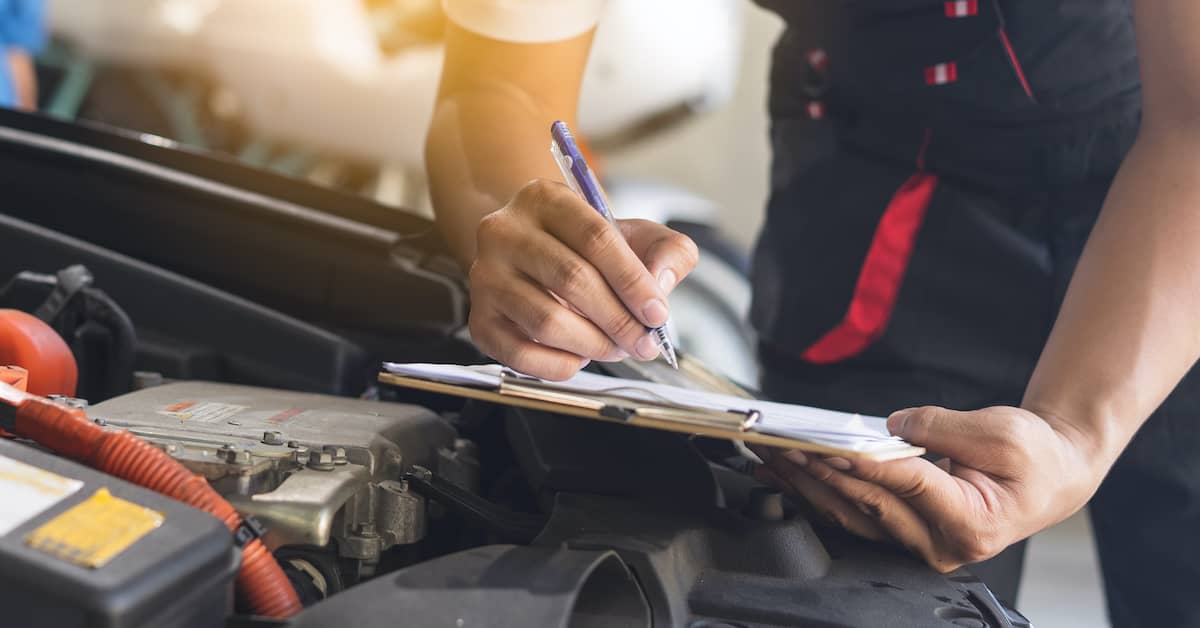
You could be driving a ticking time bomb and not know it if you purchased a pre-owned vehicle with a recall or missed a manufacturer’s recall notice. Although 30 million to 50 million cars have been recalled every year for the last 5 years, millions of those cars are still on Ohio roadways and interstates.
It is critical to your safety and that of everyone on the road to be aware of vehicle recalls and understand your rights and liabilities for fixing the issue. If you or a loved one suffered injury due to a recalled or defective vehicle, you might be entitled to compensation.
Accidents involving defective vehicles and components are complicated. Colombo Law can investigate the accident to determine your right to bring a claim against the manufacturer and other parties that contributed to your injuries and damages.
How to Check for Car Recalls
Whether a recall is voluntary or required by the government, the manufacturer has a duty to notify all consumers about open recalls for the make and model. However, these notices may go to the wrong address or end up in the trash if you mistake them for a piece of junk mail. The original owner of your pre-owned car may get the recall letter instead of you.
It’s easy for manufacturer recall notices to get lost in the mail and never make it to the vehicle owner. So, you should never assume your car doesn’t have a recall for a defective part.
Luckily, there are several ways you can check for open recalls for your make and model. You will need your Vehicle Identification Number (VIN), which is found inside the driver’s side car door where you see a barcode when you open it. The VIN can also be found on your windshield near the bottom corner on the driver’s side. It is also listed on your vehicle registration form and your auto insurance card.
The NHTSA recognizes the difficulties vehicle owners face when a recall is issued for a specific make and model. The process has been streamlined accordingly to allow vehicle owners to be aware of safety recalls and take necessary action.
Once you have your VIN, you can input it on the NHTSA Safety Issues and Recalls page to find any past or current recalls. Manufacturer recalls typically include the entire line of make and model for the vehicle, and you can check the manufacturer’s website for a current list as well. Be diligent about these searches to ensure your daily commute and weekend trips are as safe as possible.
When you bring your car in for an oil change or other routine maintenance, ask about recalls. A licensed dealer can pull up the manufacturer’s information on your specific vehicle and tell you about recalls, service advisories, and software updates.
The manufacturer’s recall notice will list:
- The vehicle parts and equipment that need to be serviced.
- The number of vehicle parts affected by the recall.
- A description of the defect or noncompliance problem.
- The reason for the recall.
- Your available options to remedy the issue.
- A schedule for repair, replacement, or refund.
What Happens When Your Vehicle Has a Recall?
Your vehicle’s manufacturer is legally obligated to offer three options to address the issue for the recall:
- Repair the vehicle defect at no cost to the consumer.
- Replace the vehicle with an identical or similar model if the problem can’t be fixed.
- Refund you for the purchase price with reasonable deductions for depreciation.
The recall notice will list instructions for vehicle owners to fix the defective part, which typically involves bringing your vehicle in for service at an authorized provider. You can contact the nearest licensed dealership for the manufacturer and ask about the recall. You will need to make sure the dealership has a manufacturer-authorized service department. Depending on the businesses in your area, you may have to contact several service providers to find one who can appropriately accommodate your vehicle.
The manufacturer must explain in the recall notice if the defect impacts the vehicle’s safety. Do not drive your car if the recall poses a health and safety threat. Even if the recall states that you can continue to use the vehicle, exercise caution and have the car serviced as soon as possible. If necessary, you can contact a towing service to move your vehicle to an authorized provider to address the recall without risking your life and others on the road. A rental car may be supplied until the issue is resolved.
Vehicle recalls also apply to accessories such as car seats. If you’ve already had the issue addressed by a repair shop before the recall, you are likely owed a refund for the cost of service. Make sure you keep all paperwork when you fix a problem with your vehicle in case you are eligible for reimbursement later.
If the recalled part or issue with your vehicle can’t be fixed or cannot be fixed after several attempts, your car may be deemed a lemon. Ohio lemon law is complicated, and you could be left without a vehicle for many months while your case is being resolved. An experienced attorney can pursue compensation on your behalf if your car is designated as a lemon.
What Are Your Rights If a Car Is Recalled?
Your rights for compensation and reimbursement for service repairs depend on the type of recall and the age of your vehicle. When the U.S. government orders a recall, the manufacturer is generally required to complete the vehicle repairs within a reasonable time at no cost to the consumer.
Voluntary recalls typically offer repairs in a similar period. Still, you may find yourself waiting weeks or months to get your vehicle fixed due to a shortage of parts to repair the issue. If this is the case, the dealership may provide a loaner car or cover rental car costs while you wait, along with the cost of towing the vehicle if necessary.
Vehicles older than 15 years with a recall may require the owner to pay a portion or all the repair costs.
How Long Does a Recall Last?
The vehicle’s manufacturer must notify registered owners of the recalled make and model within 60 days with instructions for fixing it, a time frame for the repairs, and who to contact if you experience problems getting the part fixed. There should be no charge to correct the problem unless your car is 15 years old or older. If you purchase a used car and later discover an open recall for that make and model, you are still entitled to the free repair.
While recalls typically don’t have an expiration date, you may be charged a repair fee if your vehicle is over 15 years old. If the car is more than 15 years old on the date the recall is issued, you are no longer entitled to the free remedy. However, you must repair your vehicle to fix the defect as soon as possible to reduce your safety risks.
There’s no time limit on getting the recalled vehicle fixed. However, you might have to pay a portion or all of the repair costs for an older car.
Can I Sue If My Vehicle Wasn’t Recalled? (And If It Was?)
Some recalls come too little too late for vehicle owners. If a defective part of your vehicle caused an auto accident, you might be able to bring a personal injury claim.
According to the NHTSA, only around 75% of recalled vehicles are repaired. Some owners may ignore the manufacturer’s notice or have no idea of the recall because they bought a used car or never received the letter. Being proactive in checking for vehicle recalls is critical for preventing auto accidents caused by defective vehicle parts.
If you were in an auto accident due to a product defect, you might be entitled to compensation for the damages you sustained as a result of the crash. You may also have a claim against the manufacturer for waiting too long to issue a recall.
Owners May Be Liable for Failing to Fix a Recall
Liability in auto accident lawsuits for vehicle recalls is complicated. Some vehicle owners who ignore a recall notice may be held liable in an auto accident if a defective or noncompliant car part caused the crash.
You might be held responsible for the fallout from the auto accident if you refused to fix the defect. However, if you were not aware of the defect, the manufacturer may be negligent. Drivers may also be found comparatively negligent, which reduces your compensation by the percentage you were found to be at fault in the accident.
Contact an Auto Defect Lawyer Today
Whether or not there was a recall, a defective vehicle part can upend your life in an auto accident. A car accident lawyer at Colombo Law can help you pursue financial recovery.
Our attorneys will thoroughly examine your vehicle to determine if a faulty part played a role in the accident. If we find evidence of a defect, we can bring a claim on your behalf against the manufacturer and any other liable parties.
If you or a loved one was injured in an accident caused by a recalled vehicle or a vehicle defect, Colombo Law can help. Please call (614) 362-7000 today for a free case evaluation.










